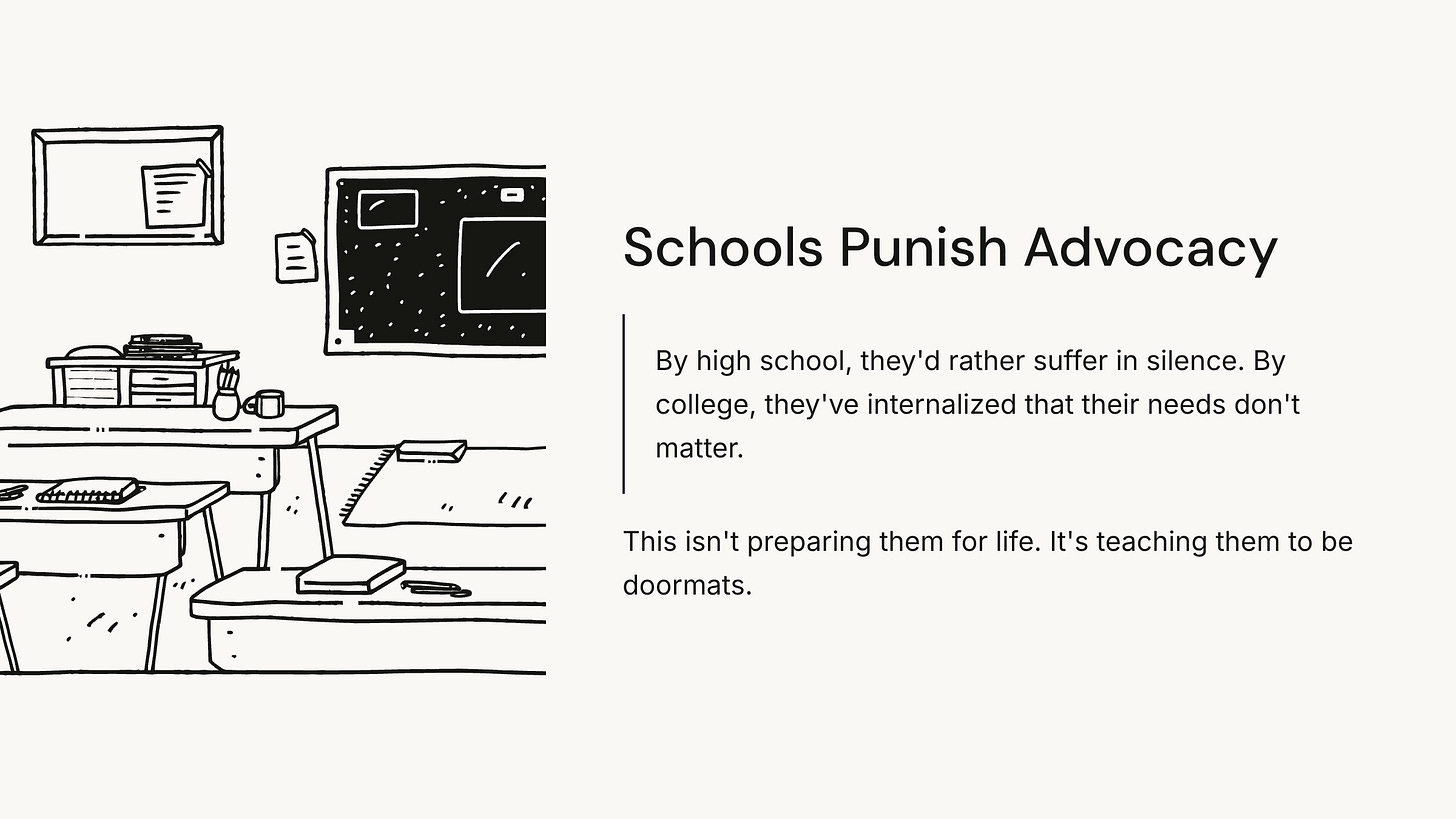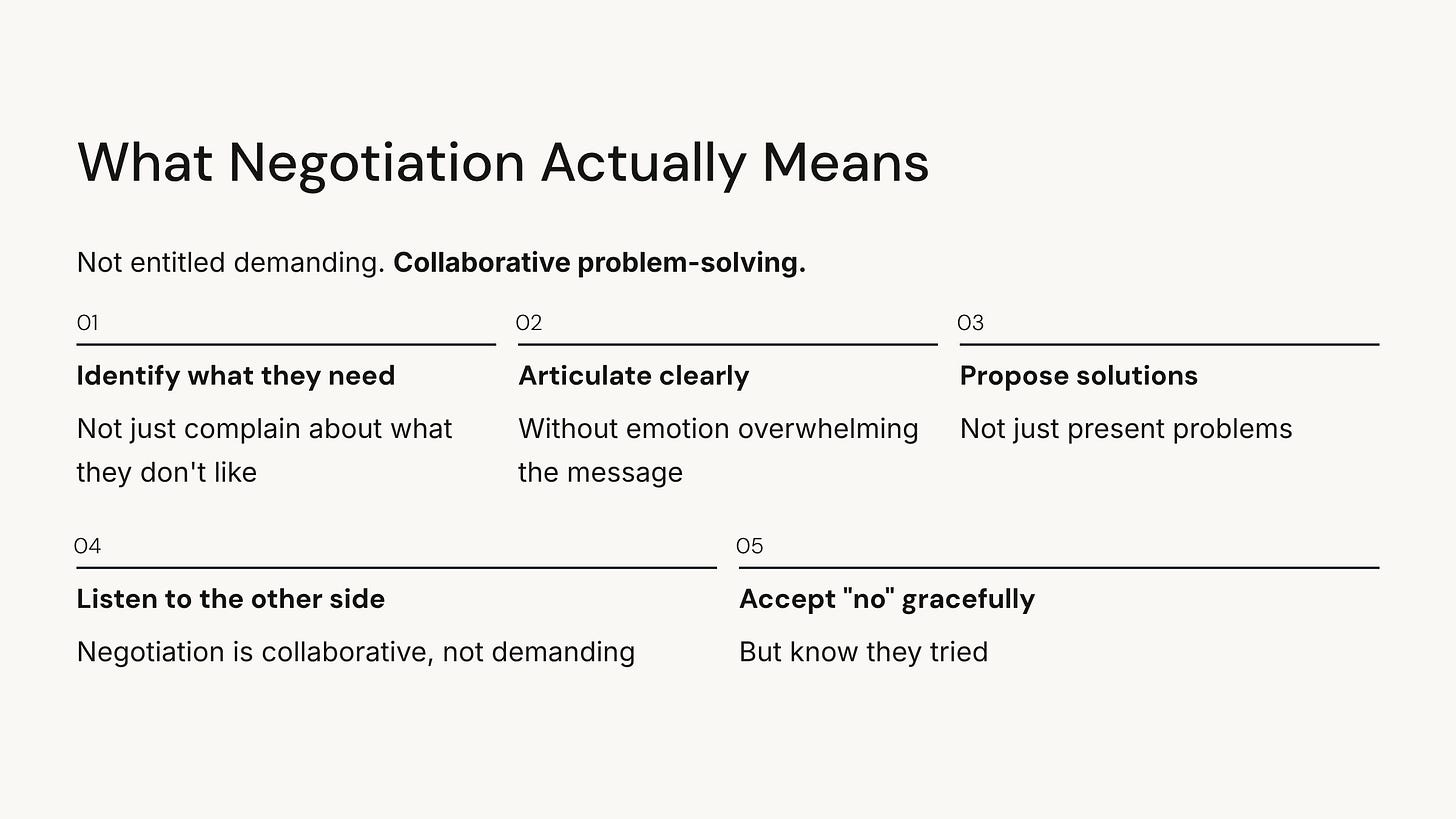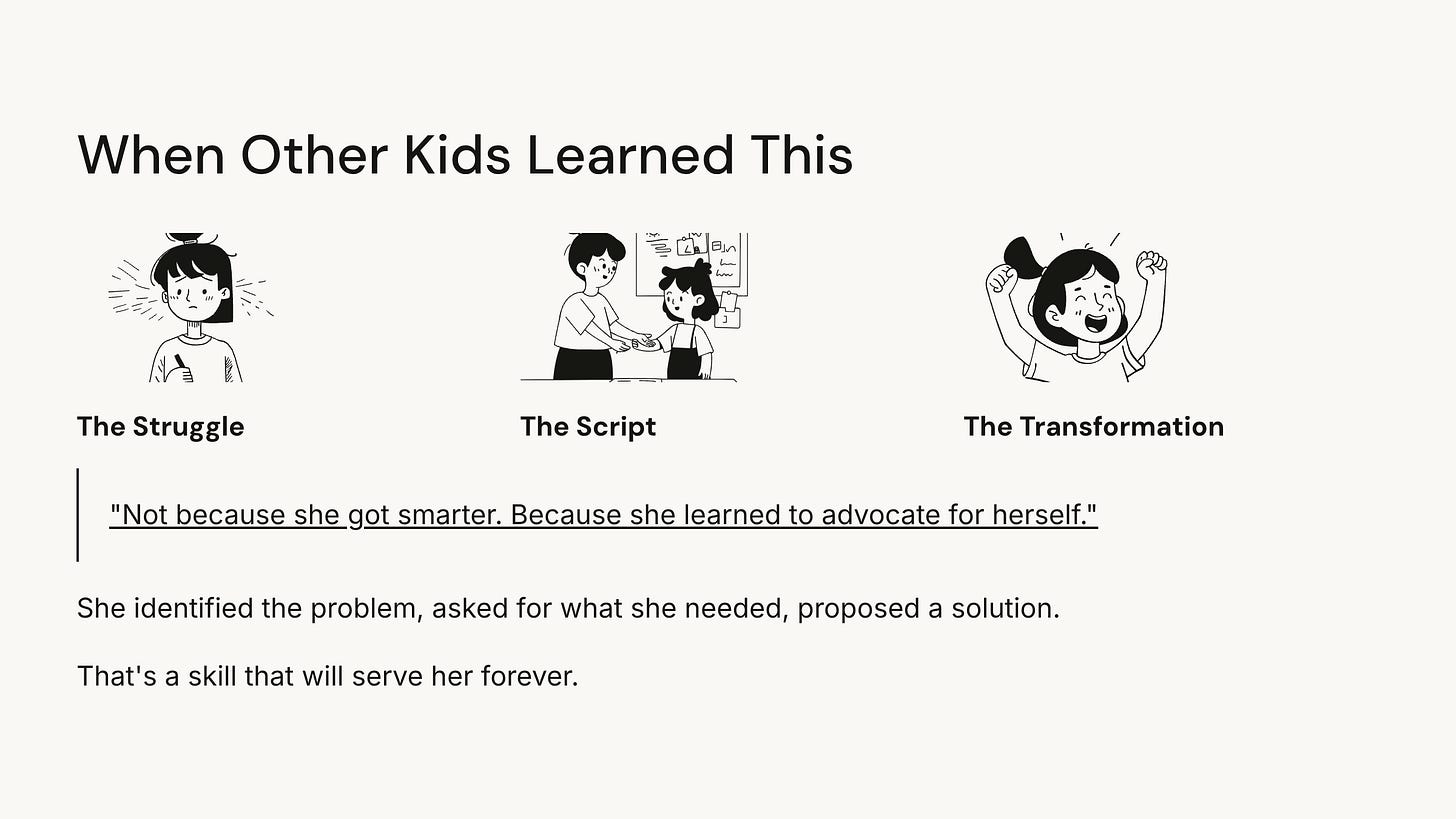The Day My Kid Negotiated His Way Out of a Problem (And Why Schools Never Taught Him How)
My 15-year-old came downstairs Thursday night looking defeated.
“My history teacher assigned our group project partners. I got stuck with two kids who never do any work. Last time we had a group project with them, I ended up doing everything the night before it was due.”
I could see where this was going. He wanted me to email the teacher.
Instead, I asked: “What do you want to happen?”
He thought about it. “I want to be in a different group. Or at least have the teacher know what’s happening so I don’t get a bad grade when they don’t do their part.”
“Okay. What’s your plan?”
“My plan? I… I don’t know. Can you email her?”
That’s the moment I realized: We’d taught him money management. We’d taught him to create value and earn. But we’d never taught him to advocate for himself.
Schools don’t teach this. They teach kids to follow the rules, accept assigned partners, and suffer in silence. Then suddenly at 18, we expect them to negotiate salaries, advocate with landlords, and stand up for themselves in relationships.
It doesn’t work that way.
The Problem: Schools Punish Advocacy

Here’s what happens in most classrooms:
A kid disagrees with a grade. A kid questions an assignment. A kid asks to switch groups because of a legitimate problem.
The response? “That’s just how it is.” “Life isn’t fair.” “Learn to work with everyone.”
Translation: Accept what authority figures decide. Don’t question. Don’t negotiate. Compliance is rewarded. Advocacy is seen as defiance.
Then these same kids graduate, and we wonder why they:
- Accept the first salary offer without negotiating
- Stay silent when roommates take advantage of them
- Let friends treat them poorly because they “don’t want to cause problems”
- Struggle to ask for extensions, accommodations, or help when they need it
The pattern starts young. Kids learn that asking for what they need makes them “difficult.” So they stop asking.
By high school, they’d rather suffer in silence than advocate for themselves. By college, they’ve internalized that their needs don’t matter as much as maintaining peace.
This isn’t preparing them for life. It’s teaching them to be doormats.
What Negotiation Actually Means for Kids

When I say “teach kids to negotiate,” I don’t mean turning them into entitled demanders who think everything should go their way.
I mean teaching them to:
Identify what they actually need (not just complain about what they don’t like)
Articulate their position clearly (without emotion overwhelming the message)
Propose solutions (not just present problems)
Listen to the other side (negotiation isn’t demanding, it’s collaborative problem-solving)
Accept “no” gracefully (but know they tried)
My son didn’t need me to fight his battles. He needed me to teach him how to fight them himself.
So here’s what I did:
“You have three options. One: Accept the group and do all the work yourself again. Two: Talk to your teacher before the project starts. Three: Do nothing and complain after the fact.”
He picked option two.
Then I asked: “What will you say?”
He started with: “I don’t want to be in this group because—”
I stopped him. “What do you want? Not what you don’t want.”
He tried again: “I’d like to request a different group. The last time I worked with these two students, I ended up doing the entire project alone the night before it was due. I’m worried the same thing will happen again.”
Better.
“And if she says no?”
“Then… I guess I ask if there’s a way to make sure everyone contributes equally. Maybe individual grades based on our parts?”
That’s negotiation. Not demanding. Not complaining. Presenting a clear problem, proposing solutions, and being ready with a backup plan.
He talked to his teacher the next morning. She moved him to a different group.
What Happened When Other Kids Learned This

The Martins taught their 11-year-old daughter the same framework.
She’d been struggling in math for weeks. Every night, tears over homework. Every test, a D or F. But she never asked the teacher for help.
Why? “I didn’t want to bother her. She’s always busy.”
Her mom taught her the script: “I’m struggling with this concept and I’ve tried to figure it out on my own, but I’m still confused. Could you explain it a different way or show me an example?”
The next day, she stayed after class and used the script.
The teacher said, “Thank you for telling me! I had no idea you were struggling. Let’s set up time twice a week before school to go through this together.”
Her grade went from failing to a B+ in six weeks.
Not because she got smarter. Because she learned to advocate for herself.
She didn’t whine. She didn’t make excuses. She identified the problem, asked for what she needed, and proposed a solution (extra help).
That’s a skill that will serve her forever—in every classroom, every job, every relationship.
Author
Jim – Chief Editor of Spielgaben and a dad with two beautiful children






LEAVE A COMMENT